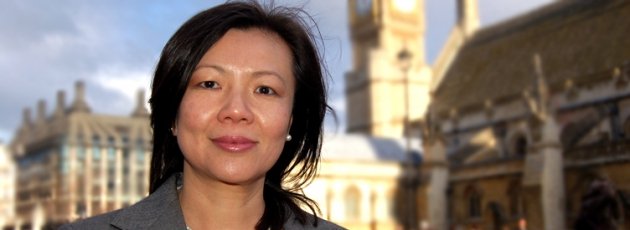- Home
- News & Blogs
- About Us
- What We Do
- Our Communities
- Info Centre
- Press
- Contact
- Archive 2019
- 2015 Elections: 11 new BME MP’s make history
- 70th Anniversary of the Partition of India
- Black Church Manifesto Questionnaire
- Brett Bailey: Exhibit B
- Briefing Paper: Ethnic Minorities in Politics and Public Life
- Civil Rights Leader Ratna Lachman dies
- ELLE Magazine: Young, Gifted, and Black
- External Jobs
- FeaturedVideo
- FeaturedVideo
- FeaturedVideo
- Gary Younge Book Sale
- George Osborne's budget increases racial disadvantage
- Goldsmiths Students' Union External Trustee
- International Commissioners condemn the appalling murder of Tyre Nichols
- Iqbal Wahhab OBE empowers Togo prisoners
- Job Vacancy: Head of Campaigns and Communications
- Media and Public Relations Officer for Jean Lambert MEP (full-time)
- Number 10 statement - race disparity unit
- Pathway to Success 2022
- Please donate £10 or more
- Rashan Charles had no Illegal Drugs
- Serena Williams: Black women should demand equal pay
- Thank you for your donation
- The Colour of Power 2021
- The Power of Poetry
- The UK election voter registration countdown begins now
- Volunteering roles at Community Alliance Lewisham (CAL)
Is the Commonwealth still relevant
The Commonwealth Games ended recently. This probably means that the Commonwealth will not be mentioned in the media for another 4 years. But surely there should be more to the vestiges of the British empire than mere staging of the Commonwealth Games? What does the Commonwealth actually do in this day and age and is it still relevant?
Representing a quarter of the world’s governments, a third of its population and a fifth of global trade, this network of 54 countries is a diverse community. Yet we share many common traits, not least the use of the English language and a shared history.
At a seminar on the Commonwealth I attended earlier this month (jointly organised by World Traders livery company and the Institute of Directors) the most compelling argument for the Commonwealth was provided by Dr Danny Sriskanderajah, Director of the Royal Commonwealth Society . According to the research carried out by the Commonwealth Secretariat, there is a phenomenon known as the “Commonwealth Effect” (PDF).
Intra-Commonwealth exports exceed $225 billion a year, and apparently this had risen by over a quarter in the last 2 decades. In addition the research found that trade between Commonwealth members is likely to be a third to half more than that between pairs of countries where one or both are not Commonwealth members. This is clear evidence that there are tangible benefits to being within the Commonwealth of countries which share a similar legal system, accounting practices and the same business language.
Lord Mayor Nick Anstee, as ever the champion and ambassador for the City, has emphasized the important role played by London in bringing together capital and expertise into one place. And he also stressed that it is via the City that the rest of the world is able to tap into, not only the EU market but also the markets in the rest of the Commonwealth.
However, to me the value of the Commonwealth goes beyond trade and prosperity. Whilst its vision had originally been in preserving UK’s interests in the world, it should also be about Britain’s responsibilities to her ex-colonies. The strength of the Commonwealth is in providing the young nations with the framework and wherewithal to pursue democracy and good governance, operating within the rule of law.
Of course, some may argue that Britain had fallen short in some cases and left a power vacuum with Constitutions that facilitated elected dictatorships (mostly using first past the post method of election).
However, countries such as Burma are clearly in a much worse state for not having joined the network of nations.
Here are just a few examples of how the Commonwealth had made a difference:
- In lobbying at the highest level for the end of apartheid in S Africa.
- Through Commonwealth’s ‘special envoys’, establishing an independent electoral commission in Cameroon, a new constitution in Swaziland and contributing to peaceful elections in Guyana.
- In helping develop laws which protect the intellectual property rights of authors, musicians and inventors. And all these were achieved on fairly modest budgets.
We are currently in one of the worst economic situations since the second world war. By the time this article is published we would have heard about where the axe will fall in the Comprehensive Spending Review. We must ensure that the Commonwealth Secretariat, Business Council and related arms of the Commonwealth will have their budgets ring-fenced and protected .
To conclude, I would like to see more recognition of the relevance and importance of the Commonwealth in promoting world trade as well as liberal and democratic values. We should educate our young on its history and support and invest in its institutions. The Commonwealth is also the reason why some of us ended up here today, living in Britain. So let’s make sure we don’t take it for granted and put the C back in the FCO (Foreign Commonwealth Office)?
By Merlene Emerson
About the author:
Merlene was born in the then British colony of Singapore and came to London to study law (the Privy Council being the highest Court of Appeal for most countries in the Commonwealth). She was PPC for Hammersmith in May 2010 and is currently on the Lib Dem short list of candidates for the London Assembly 2012.
Contact: campaign@merlene.org.uk; Twitter: @merleneemerson
